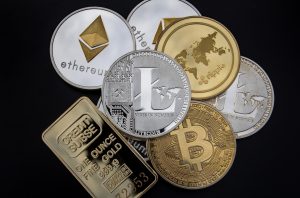 As of February 2019, cryptocurrency traders are not allowed to make deposits or withdraw money from their bank accounts in Nigeria. The country’s central bank, the Naira Reserve Bank, is attempting to regulate and curb cryptocurrency trading. But it seems like the ban is not having much of an impact. More Nigerians are turning to the virtual currency as a way to protect their savings, conduct business, and make international payments.
As of February 2019, cryptocurrency traders are not allowed to make deposits or withdraw money from their bank accounts in Nigeria. The country’s central bank, the Naira Reserve Bank, is attempting to regulate and curb cryptocurrency trading. But it seems like the ban is not having much of an impact. More Nigerians are turning to the virtual currency as a way to protect their savings, conduct business, and make international payments.
Cryptocurrency trading is more prevalent in Nigeria than in other parts of the world, largely due to the country’s young and tech-savvy population. Recent surveys have shown that 32% of Nigerians are active users of cryptocurrency. The apex bank and a variety of platforms have also contributed to the smooth adoption of cryptocurrency. However, there are still many questions that remain about how and where to buy and sell crypto in Nigeria.
The easiest way to buy and sell cryptocurrency in Nigeria is through a cryptocurrency exchange. There are several such exchanges in Nigeria, each with different fees, limits, payment methods, and verification processes. The two main exchanges for active crypto trading in Nigeria are Luno and NairaEX. However, liquidity isn’t as good as on Coinbase, which makes this type of platform less safe than Coinbase. You can also try a P2P exchange platform, where you can negotiate directly with buyers and sellers.
Local investors have been increasingly interested in cryptocurrency as the value of the naira has plunged by 209% over the past six years. This has led to an increased interest in the virtual currency due to local investors’ distrust of centralised financial systems and top-down economic control. Many investors have expressed frustration with the government’s policies and the overall decline in the Nigerian economy. With this in mind, many are turning to cryptocurrency as a means to create wealth, as well as reduce their financial expenses.
In addition to the Bitcoin ATM, there are other ways to buy and sell cryptocurrency in Nigeria. You can also use the P2P network to interact with other Nigerian traders and merchants. Depending on your preferences, you can choose between Bitcoin and Ripple transactions. If you’re a beginner, you can use a service like Remitano to buy bitcoins and altcoins in Nigeria. These exchanges offer many benefits, including regulated platforms and support.
To participate in cryptocurrency trading in Nigeria, it’s important to register with one of the major exchanges. You can do this through the website Coinbase or an alternative exchange such as Binance. However, if you’re not a resident of the country, you should register with another exchange. Alternatively, you can use a P2P platform such as Bitconnect. The only downfalls of using a P2P platform is that you have to pay higher transaction fees.
Luno is a popular cryptocurrency exchange in Nigeria. It also allows consumers to purchase crypto using their credit card. Its platform is fully regulated by the ASIC, CySEC, and FCA. Moreover, it offers fiat trading pairs with a USD and naira. If you’re an investor, Luno also allows you to convert your crypto into fiat currency. Its platform has also been affected by the CBN’s ban on cryptoassets in February 2021.
